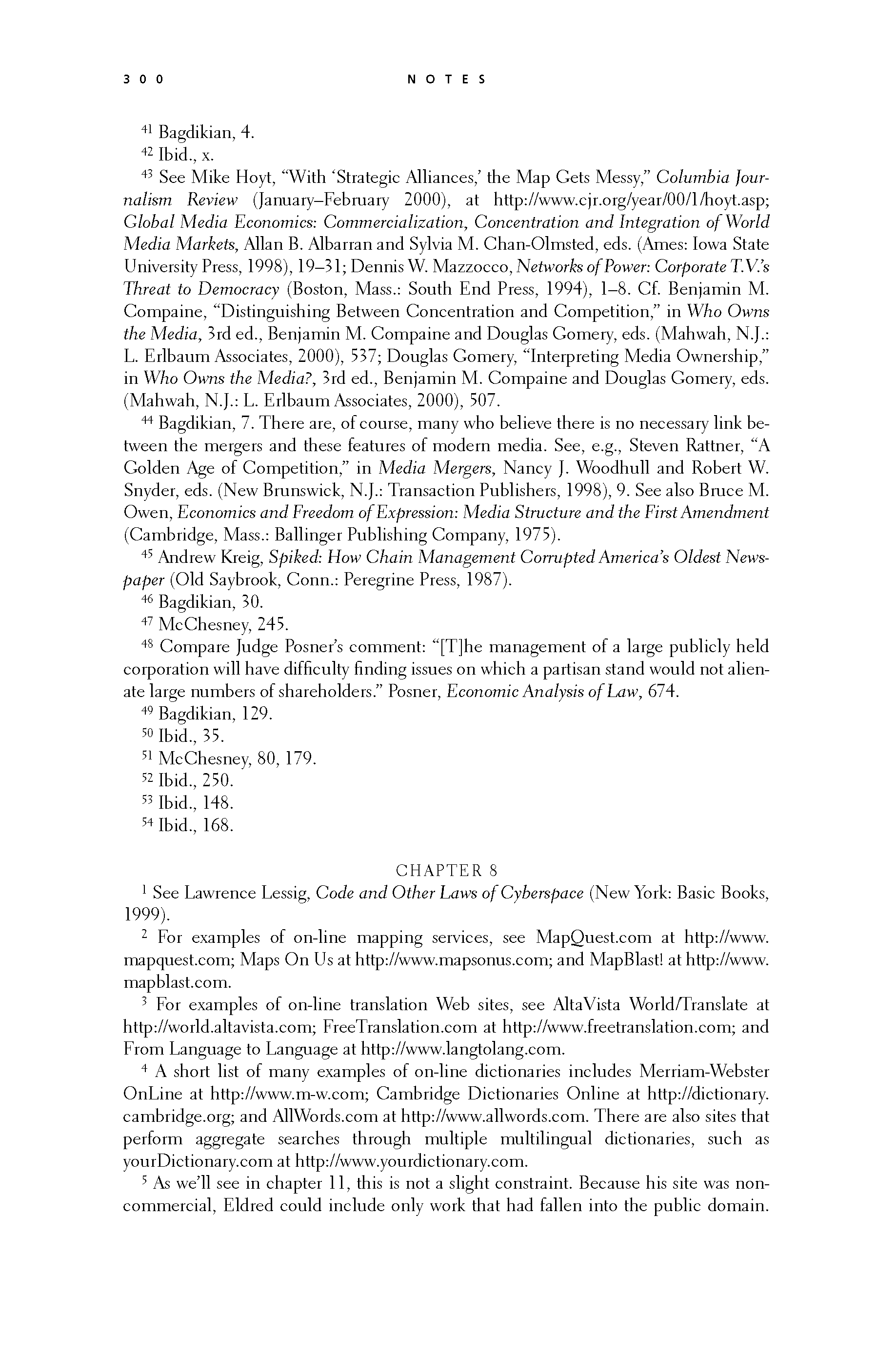 p199 _
-chap- _
toc-1 _
p200w _
toc-2 _
+chap+ _
p201
p199 _
-chap- _
toc-1 _
p200w _
toc-2 _
+chap+ _
p201
Napster usage fell after the court restricted access, album sales fell as well.
Napster may indeed have helped sales rather than hurt them.)[11-40]
At the same time, it can't be denied that the Net has reduced the ability
that parents have to protect their children. Yet the law says, "Wait and see,
let's make sure we don't harm the growth of the Net." In one case -- where
the harm is the least -- the law is most active; and in the other -- where the
harm is most pronounced -- the law stands back.
Indeed, the contrast is even stronger than this, and it is this that gets to the
heart of the matter.
The Internet exposes much more copyrighted content to theft than in the
world that existed before the Internet. This much of the content holders'
claim is plainly true.
But as I've argued, the Internet does two other things as well. First, the
Internet makes it possible (if the proper code is deployed) to control the use
of copyrighted material much more fully than in the world before the Inter-
net. And second, the Internet opens up a range of technologies for produc-
tion and distribution that threaten the existing concentrations of media
power.
In responding to the shock that the Internet presents to copyright law, it is
of course important to account for the increased exposure to theft. But the
law must also draw a balance to assure that this proper response to an in-
creased risk of theft does not simultaneously erase the important range of
access and use rights traditionally protected under copyright law. If the Net
creates an initial imbalance, the response by Congress should not create an
equal and opposite imbalance, where traditional rights are lost in the name
of perfect control by content holders.
That was my argument in _Code._ But now we should add a second con-
cern to that same story: The response by Congress should also not be such
as to permit this concentrated industry of today to leverage its control from
the old world into the new. Artists deserve compensation. But their right to
compensation should not translate into the industry's right to control how
innovation in a new industry should develop.
_Control,_ however, is precisely Hollywood's and the recording labels' ob-
jective. In the context of copyright law, the industry has been very clear: Its
aim, as RIAA president Hilary Rosen has described it, is to assure that no
venture capitalist invests in a start-up that aims to distribute content unless
that start-up has the approval of the recording industry.[11-41] This industry thus
demands the right to veto new innovation, and it invokes the law to support
its veto right.[11-42]
[[200]]
p199 _
-chap- _
toc-1 _
p200w _
toc-2 _
+chap+ _
p201